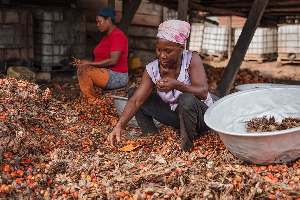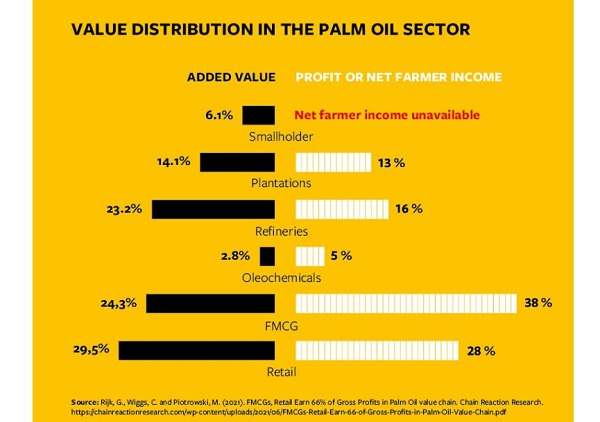 In Ghana, smallholders are responsible for managing approximately 81% of the country’s oil palm
In Ghana, smallholders are responsible for managing approximately 81% of the country’s oil palm
A new global report is calling for a radical transformation of palm oil procurement practices to ensure fairer returns for smallholder farmers across West Africa.
The Palm Oil Barometer 2025: Procurement for Prosperity, released by Solidaridad and endorsed by various smallholder representatives and agricultural experts, highlights the urgent need for equitable value distribution in the palm oil sector.
The report underscores the central role of oil palm in food security and livelihoods in West Africa, describing it as a crop with the potential to lift farming families out of poverty within a generation.
Despite this promise, smallholder farmers, who dominate the region’s oil palm production, continue to receive a disproportionately low share of profits.
In Ghana, smallholders are responsible for managing approximately 81% of the country’s oil palm cultivation area, yet many face challenges such as low yields and poor access to formal markets. Similar issues persist across the region.
In Nigeria, where smallholders account for 80% of national palm oil production, farmers continue to rely on outdated processing techniques and struggle with limited infrastructure.
Côte d’Ivoire’s smallholders manage 73% of oil palm land, while in Sierra Leone, about 70% of palm oil is produced by small-scale farmers, many of whom depend on harvesting wild palm groves.
The report also noted a regional imbalance as West Africa consumes more palm oil than it produces, forcing many countries to rely heavily on imports.
This shortfall, coupled with systemic barriers such as limited access to inputs and capital, restricts smallholders from boosting production and contributing more significantly to national food security.
“Governments and industry, in collaboration with sustainability certification platforms, need to adopt a new business model for engagement, organisational development, and capacity building that supports improved access to inputs and markets for independent smallholder farmers,” it mentioned.
The Palm Oil Barometer 2025 identifies the unequal distribution of value along the supply chain as a core issue preventing smallholders from fully benefiting from the global palm oil trade.
The report raises critical questions about the viability of sustainable production if farmers cannot secure fair compensation or invest in climate-resilient practices.
It noted that, “Smallholders in Africa, are particularly vulnerable to volatile market prices and the increasing impact of climate change, which puts their already precarious incomes at further risk.”
The report therefore calls on policymakers, industry leaders, and sustainability bodies to rethink procurement strategies and ensure that those at the foundation of the supply chain, smallholder farmers, are not left behind.

SSD/MA
